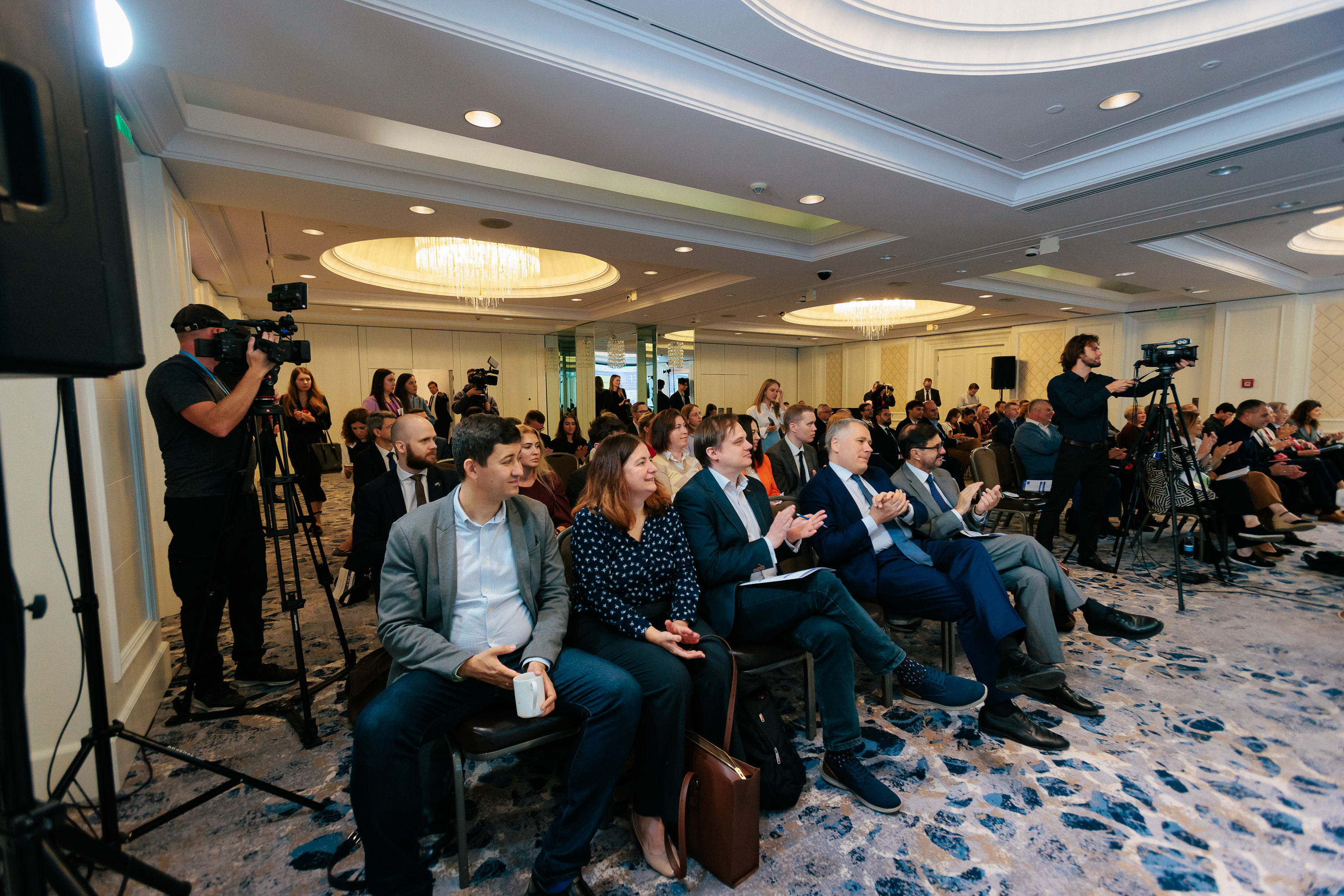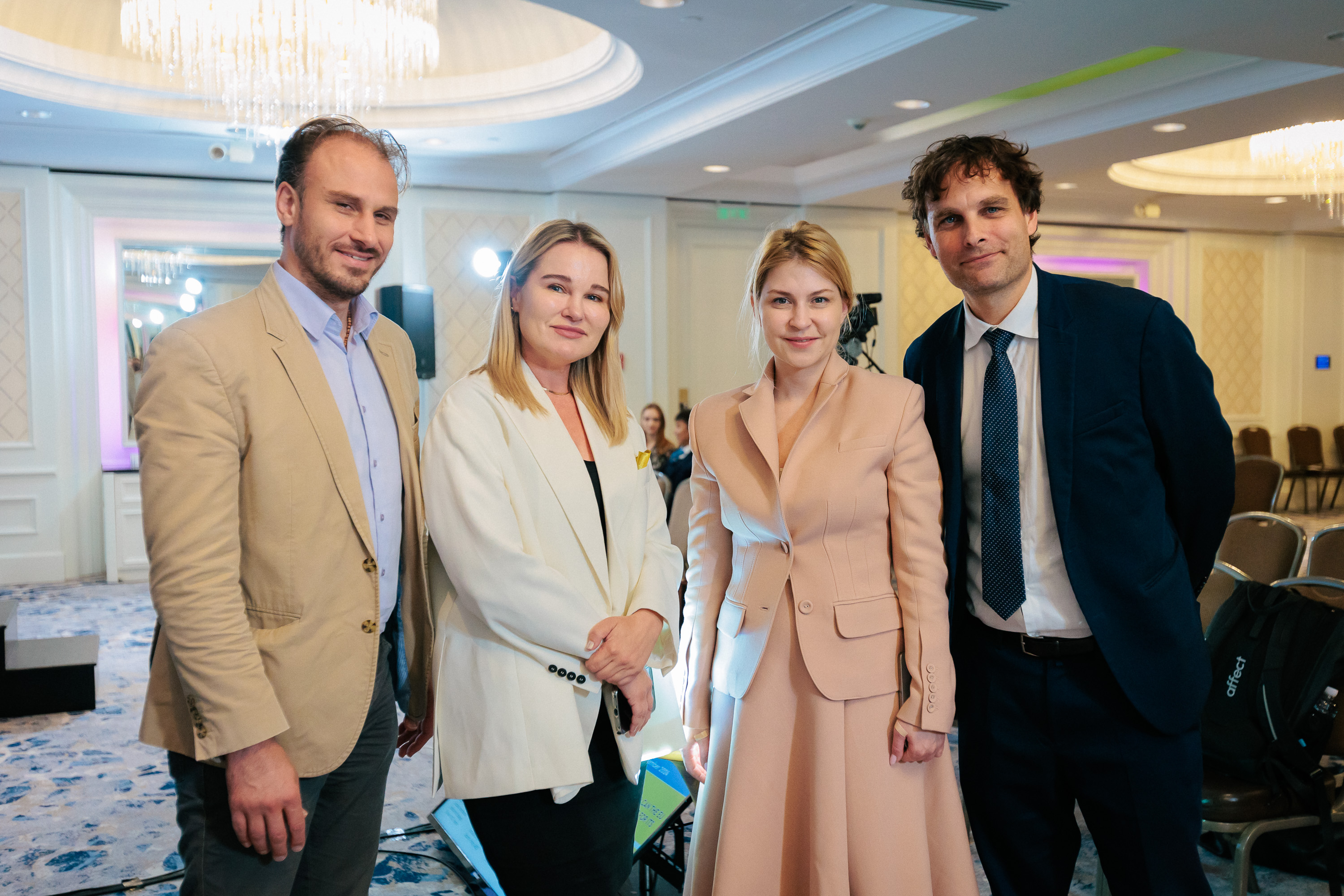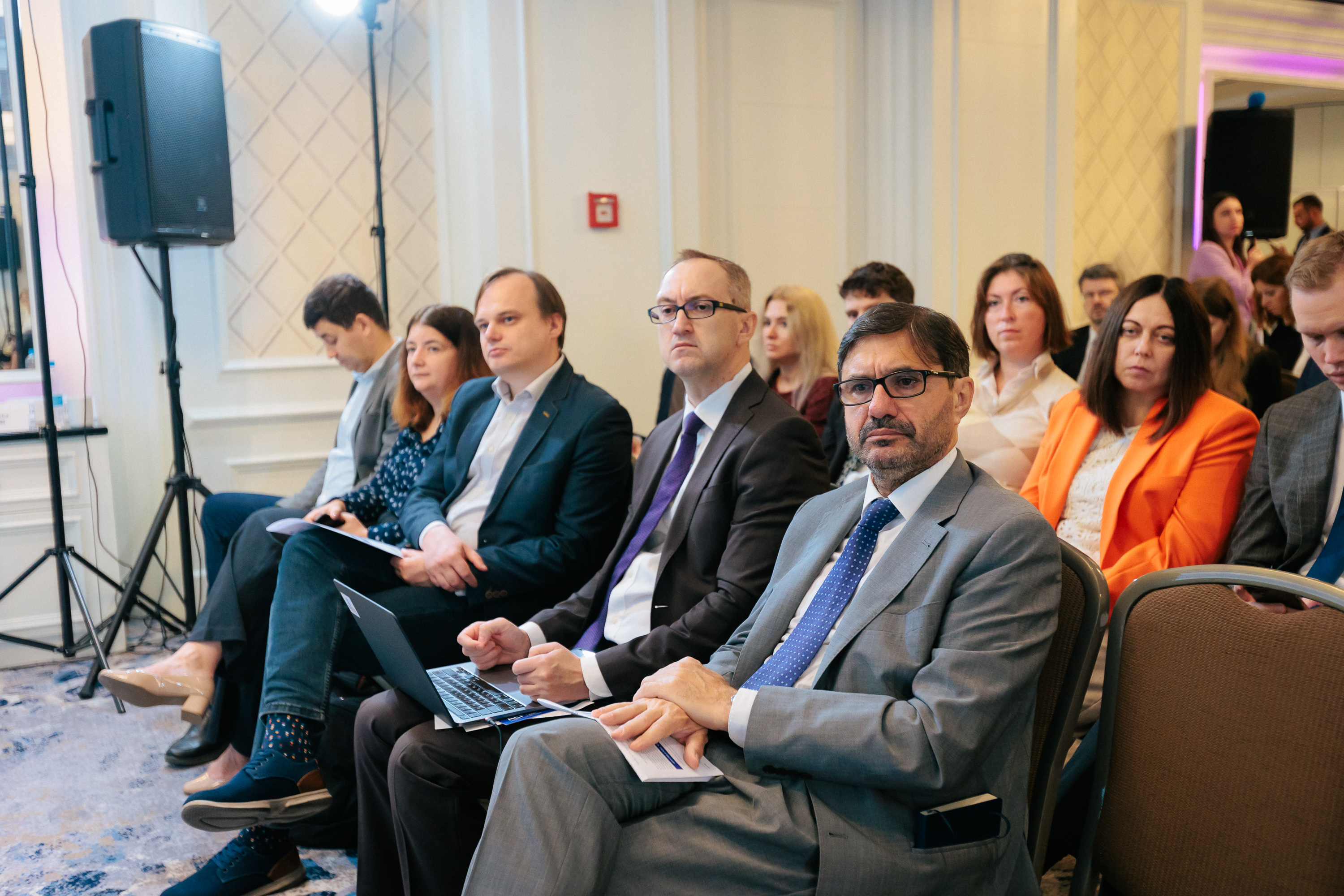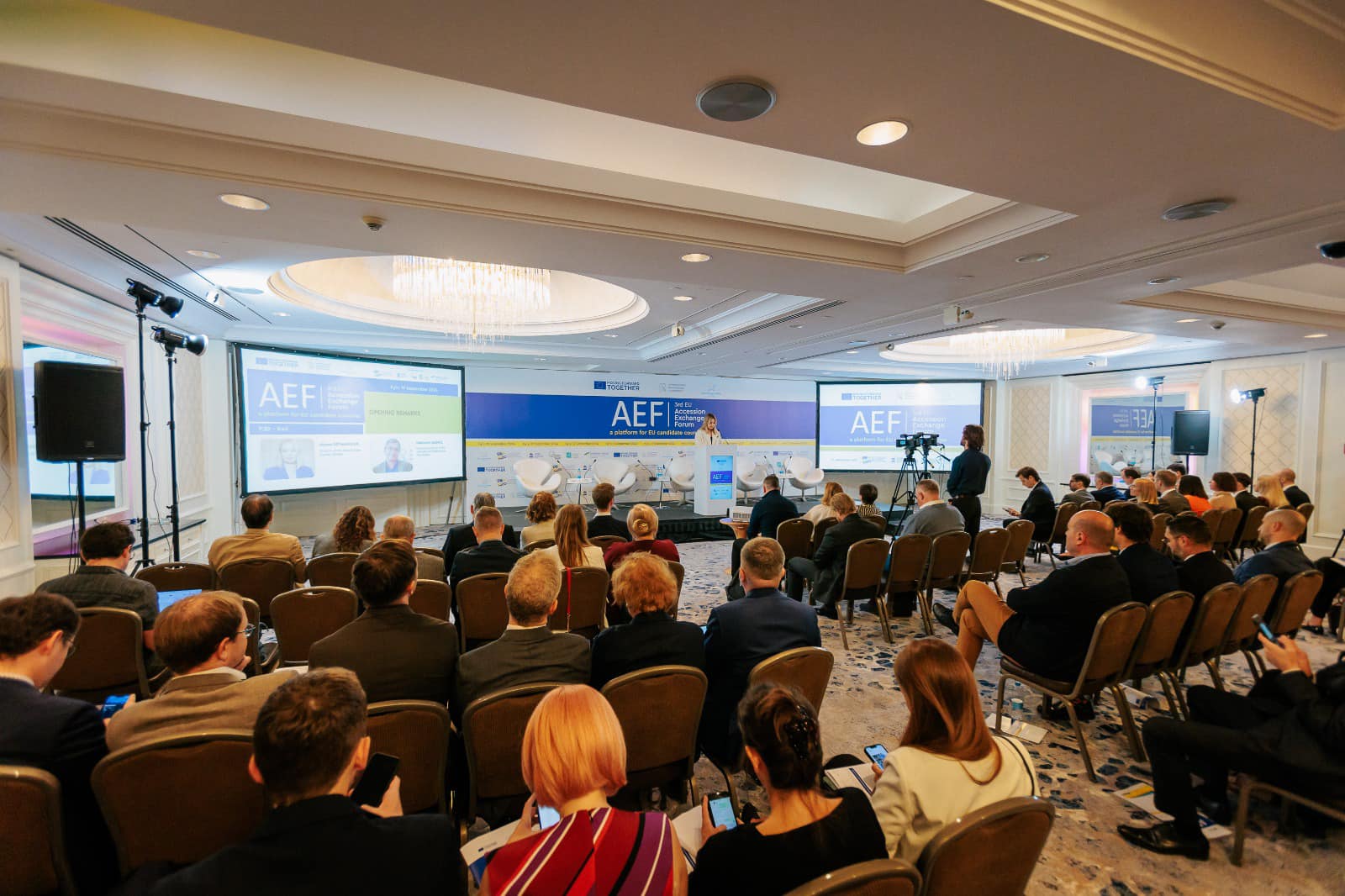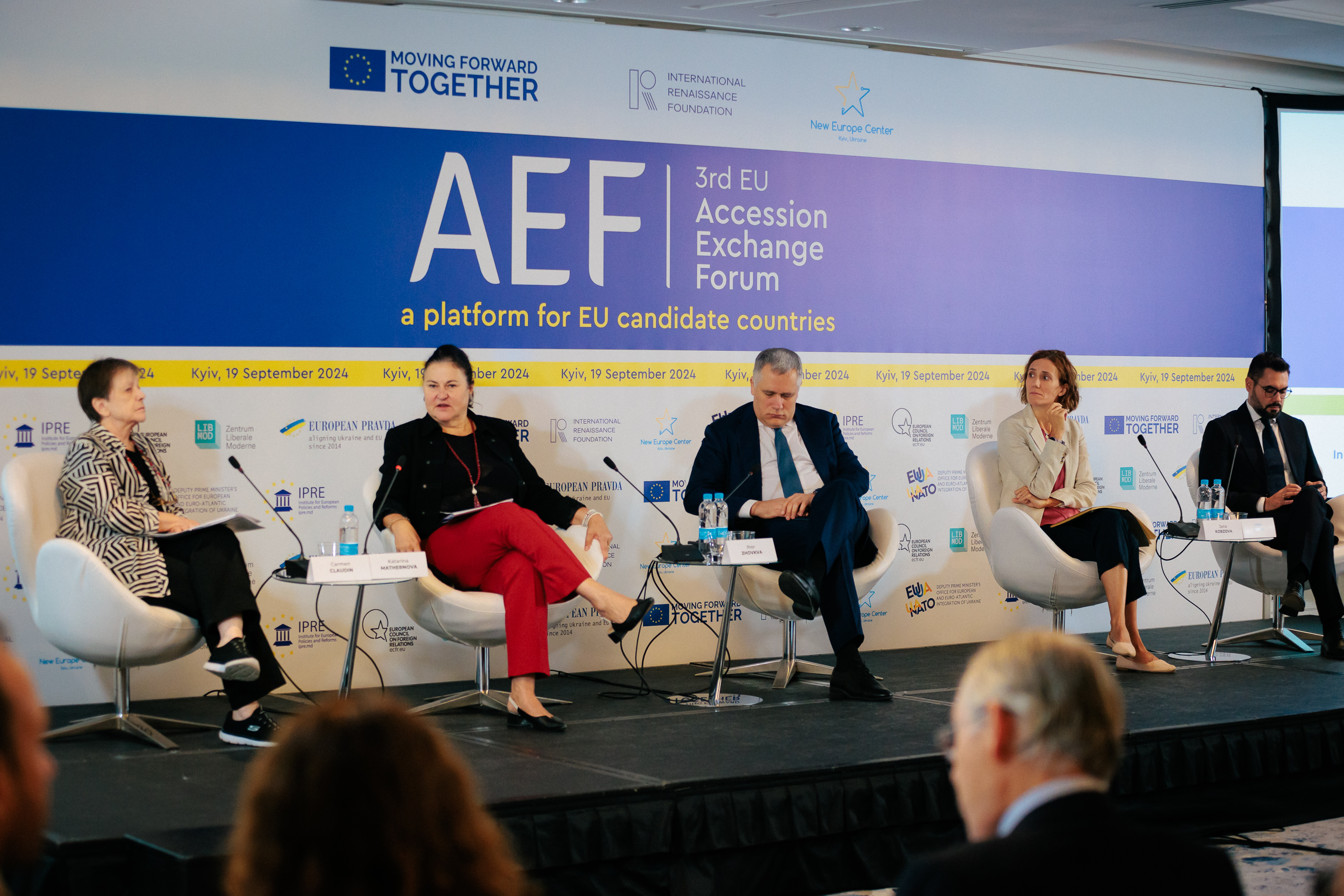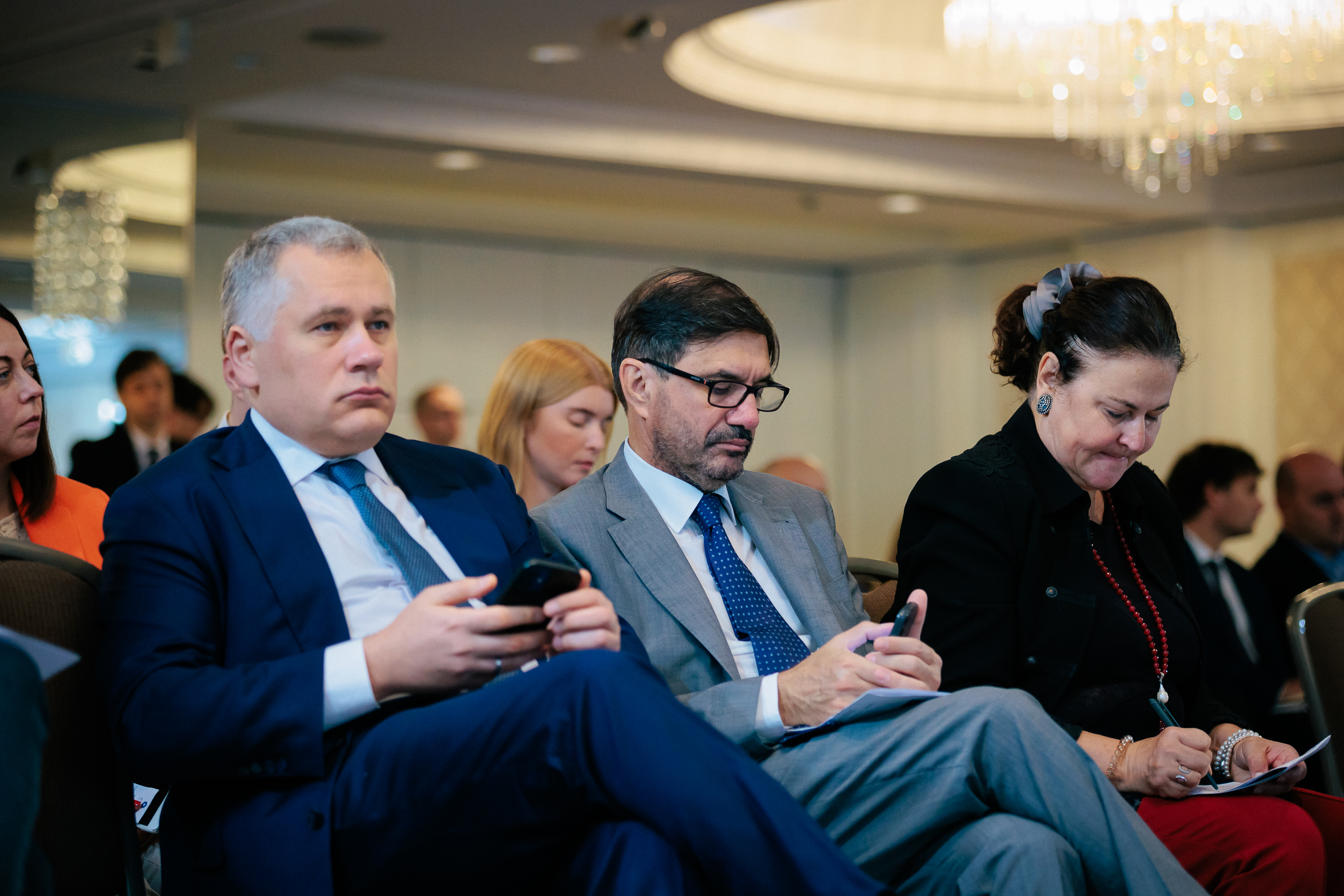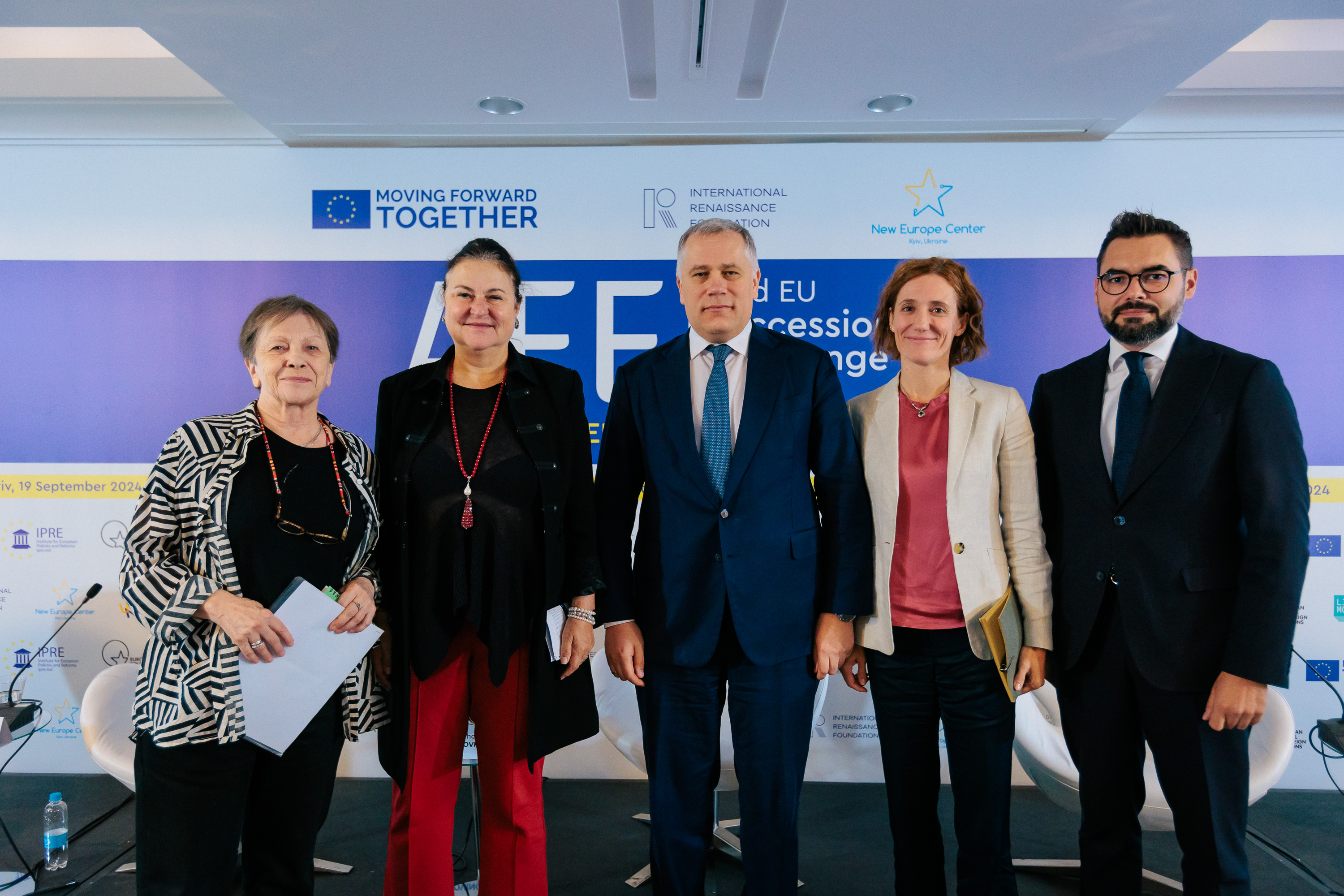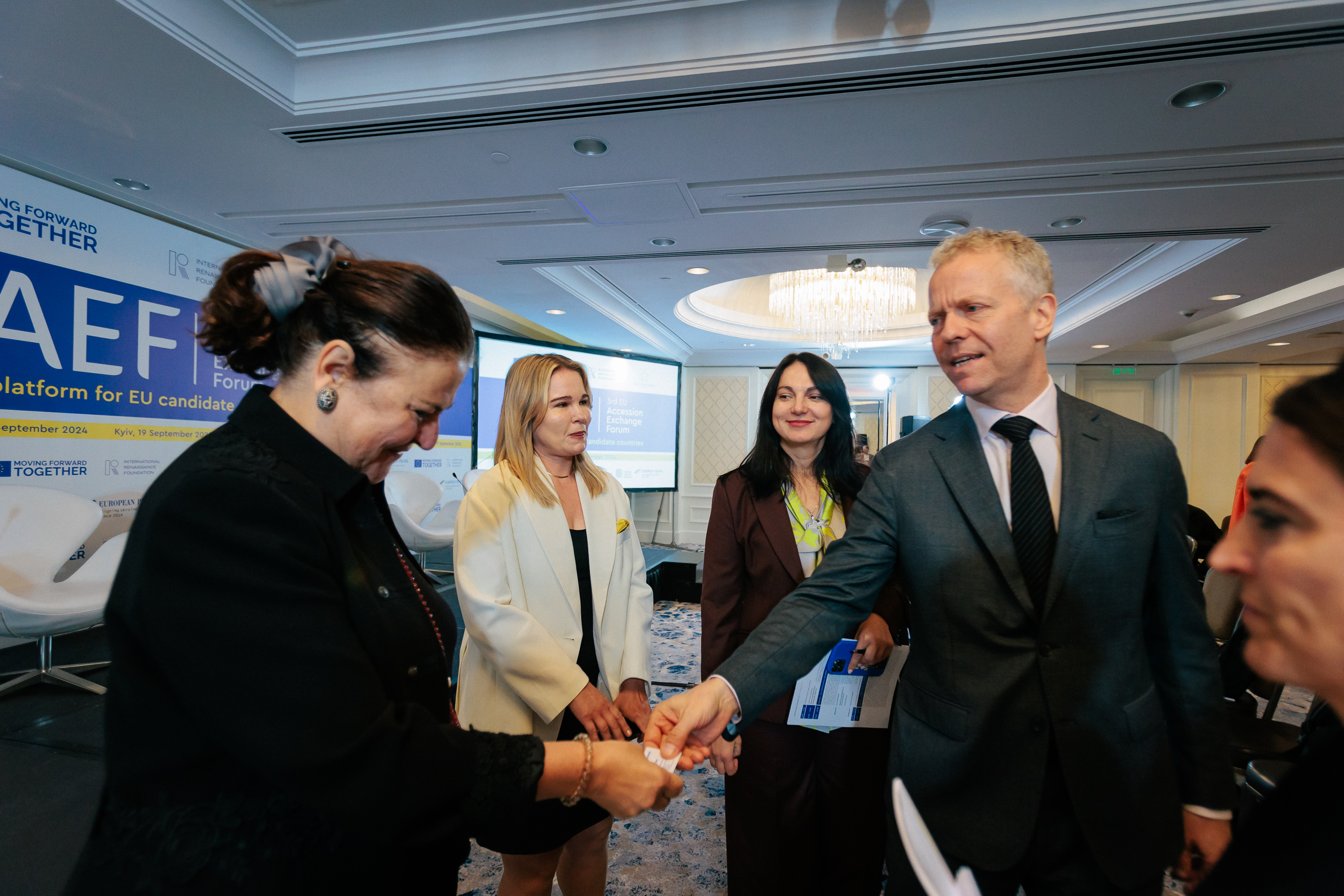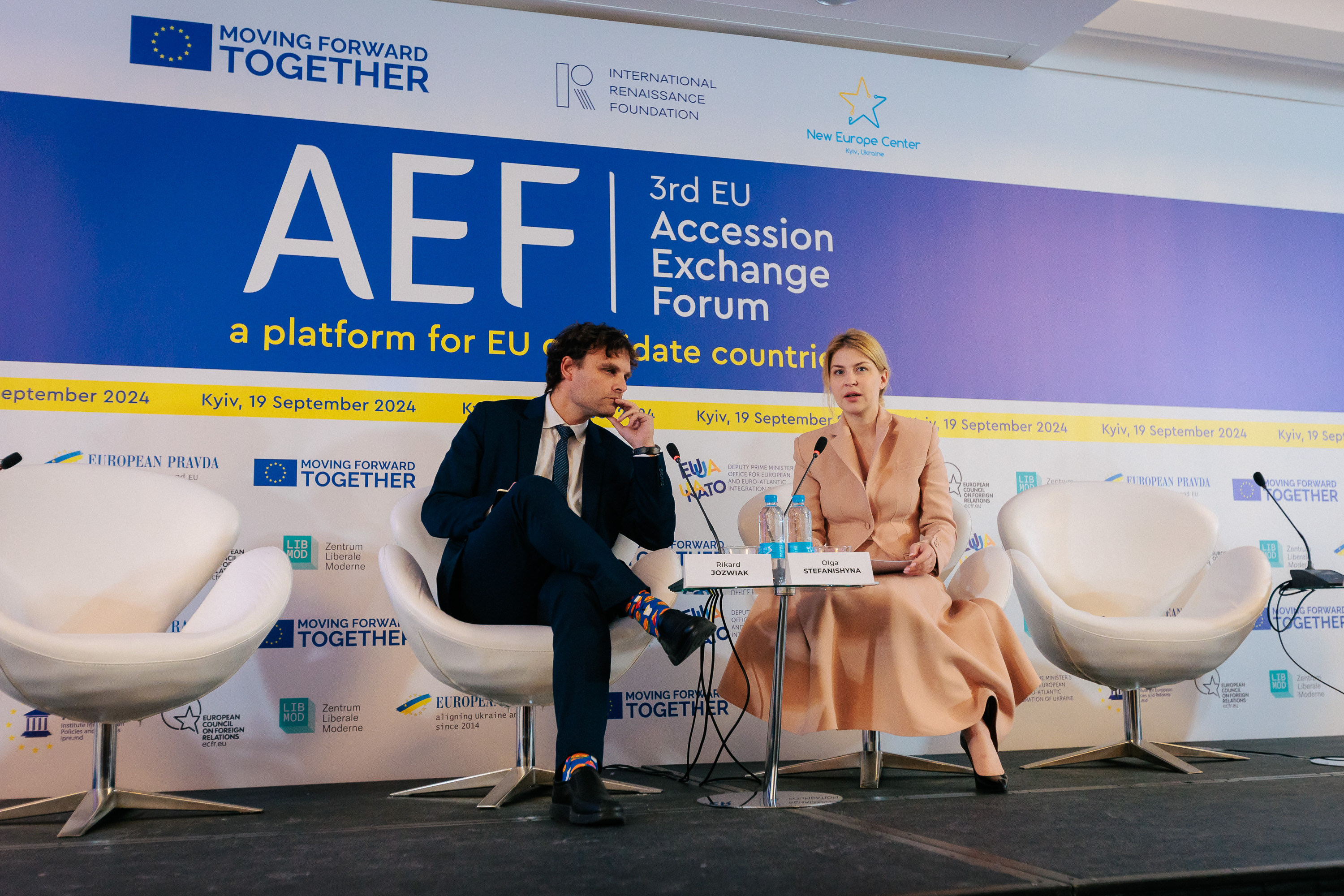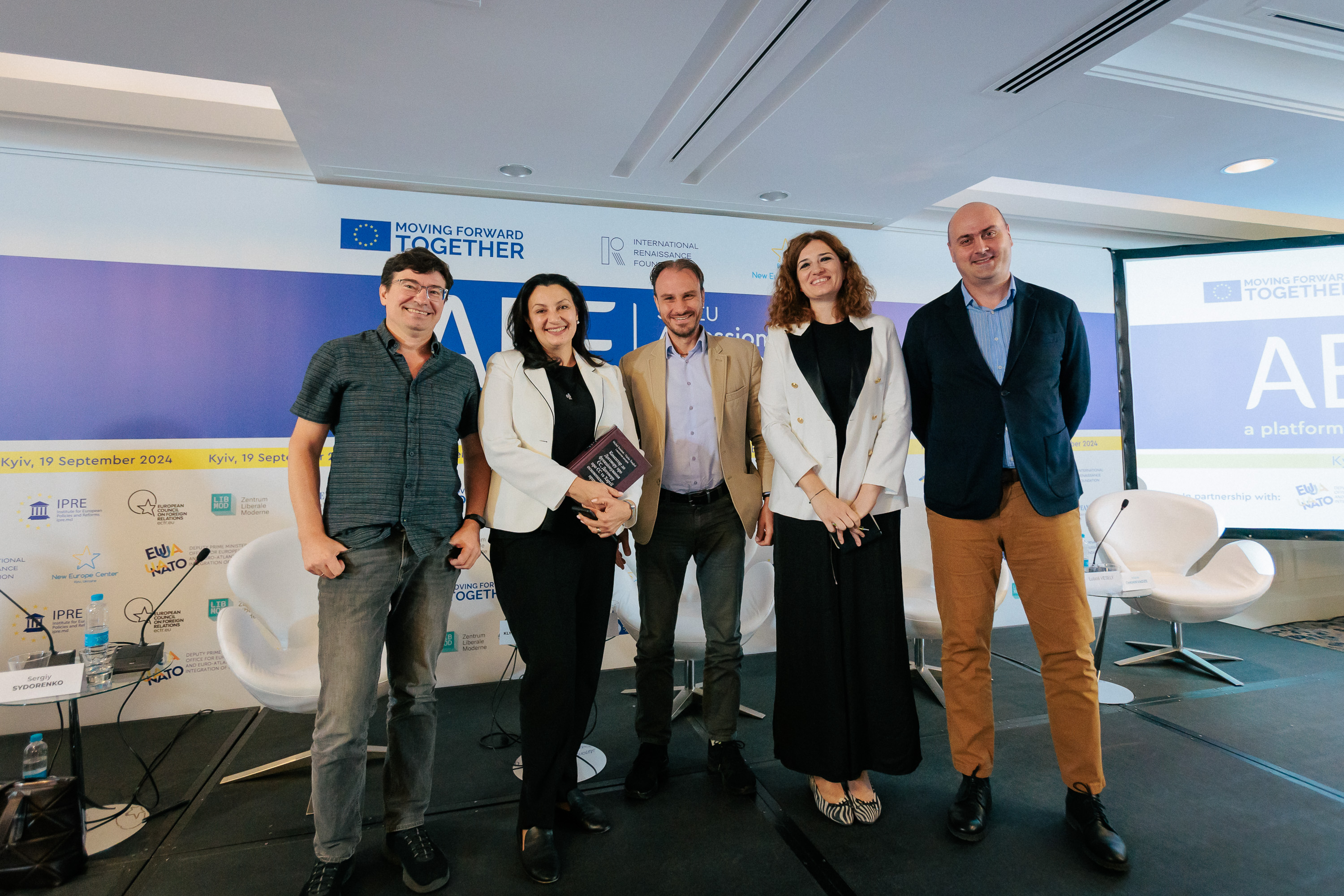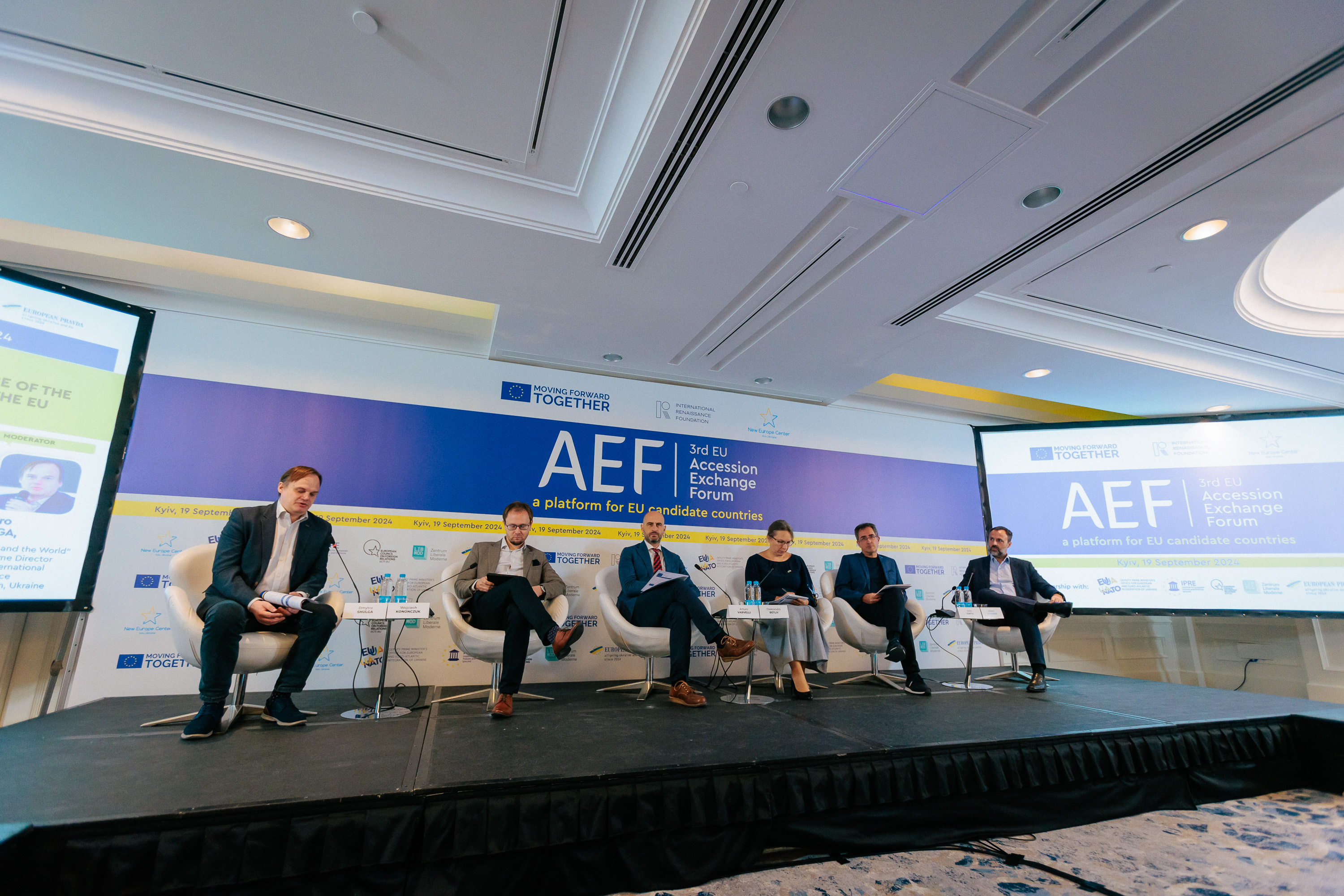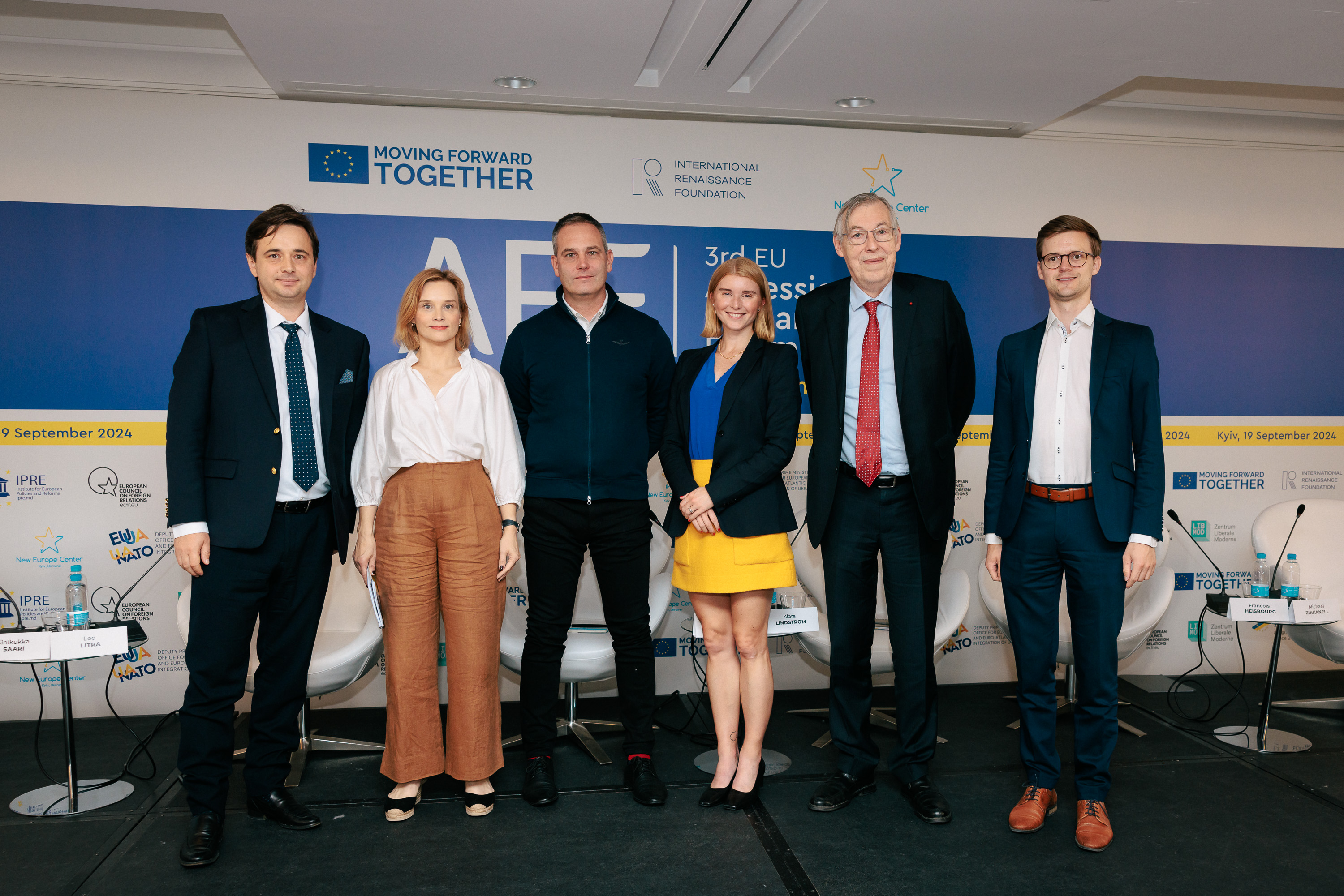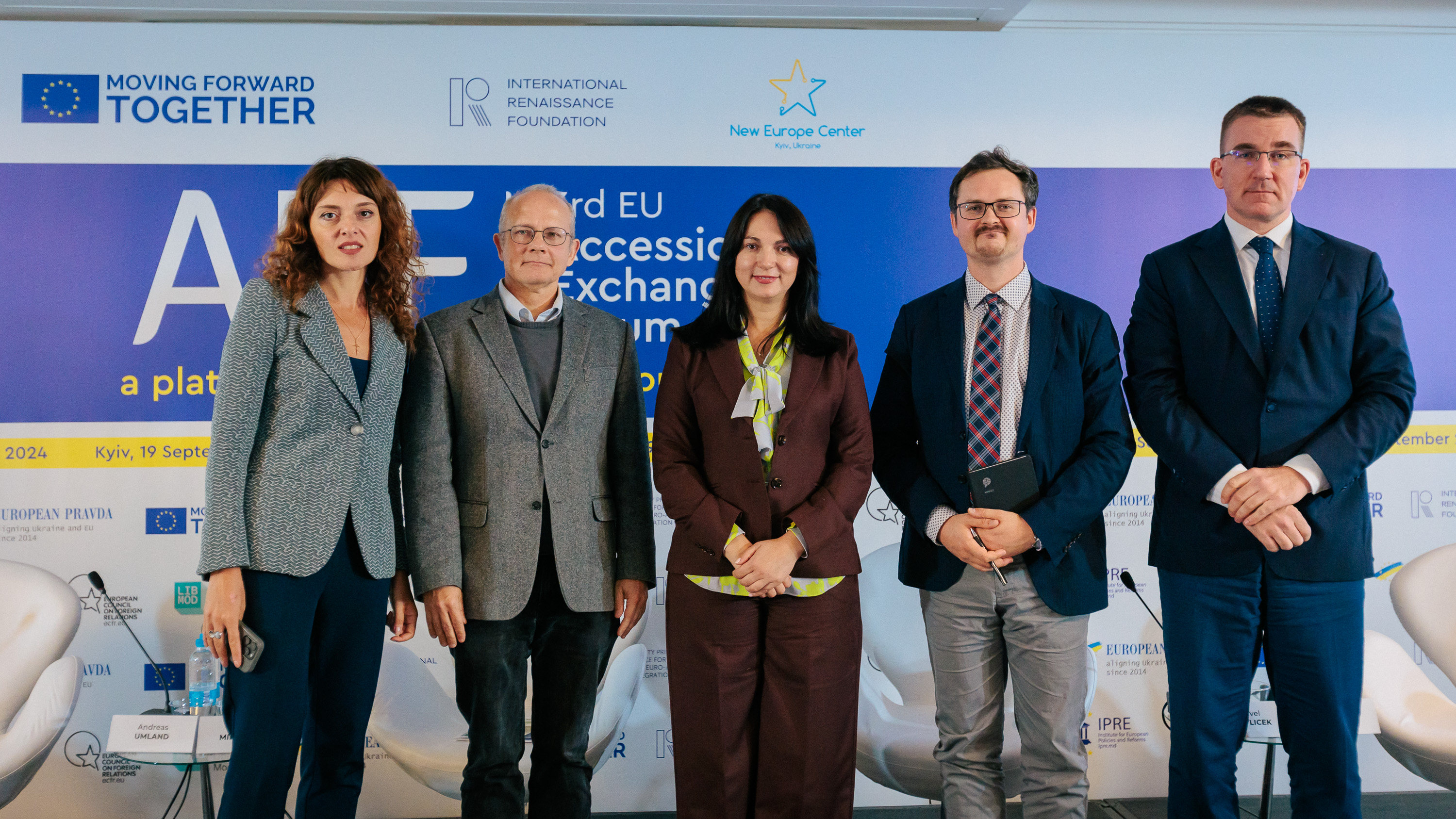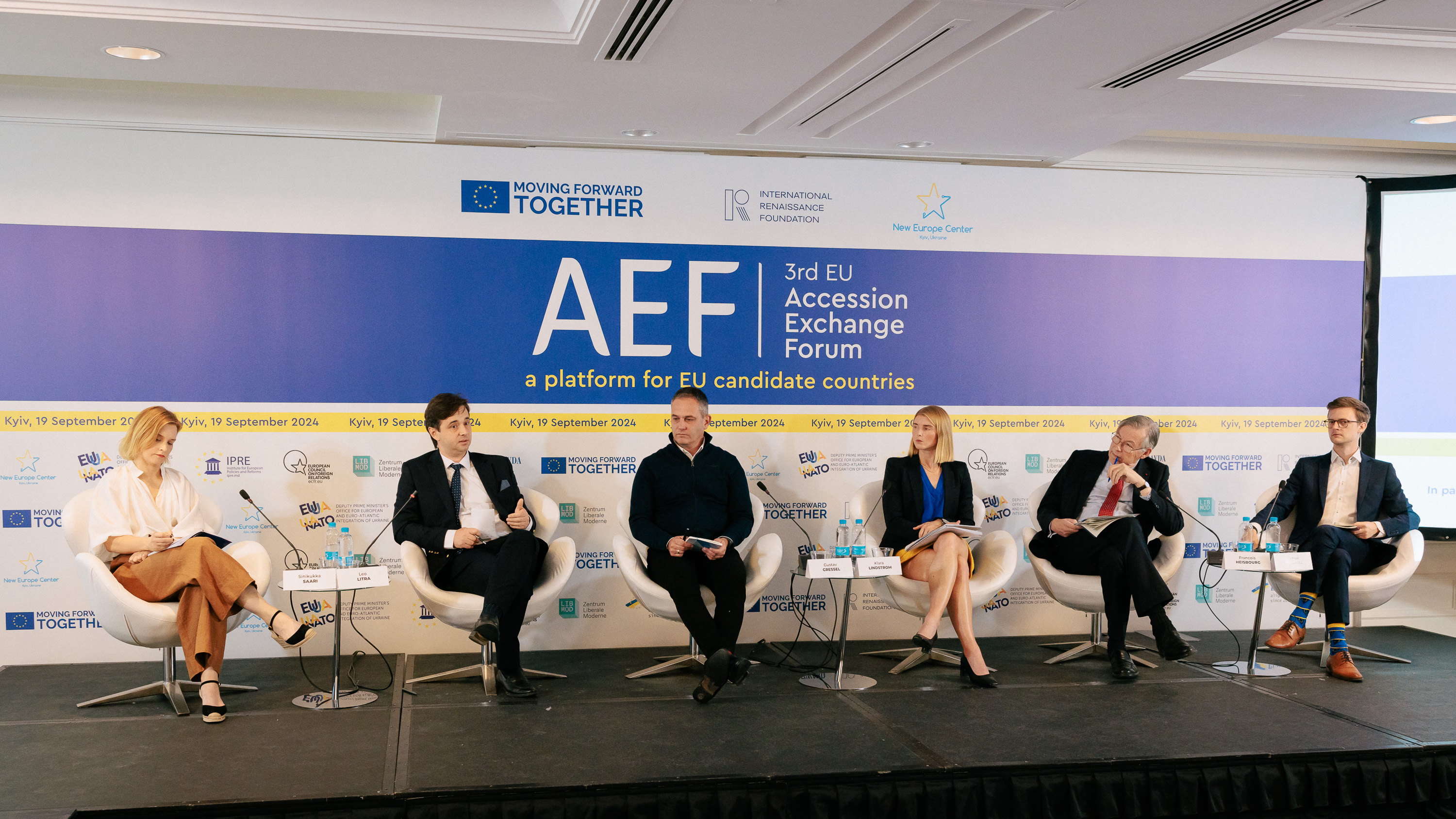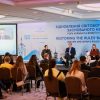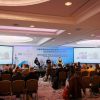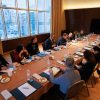On September 19, 2024, the New Europe Center organized the 3rd EU Accession Exchange Forum with the participation of high-ranking officials and leading experts in Kyiv.
The Forum was created as a key expert platform for all candidate countries for membership of the EU, whose task is to exchange lessons learned in the process of accession talks and develop recommendations on how to make the EU enlargement process more effective.
More than 100 participants took part in the 3rd Forum.
The discussion panels were devoted to the following issues:
- EU’s geopolitical enlargement is back. Can it deliver?
- Taking stock of the reforms in the candidate countries and the EU: What now? What next?
- Spoilers of the EU integration: how to safeguard the EU accession process from Russia’s interference?
- How much does it cost? The price of the enlargement and the impact on the EU budget
- Gearing up for a Defence Union: can the EU stand alone as a security provider for its current and future members?
Video recording of the Forum is available here.
Below you will find some key points from our speakers:
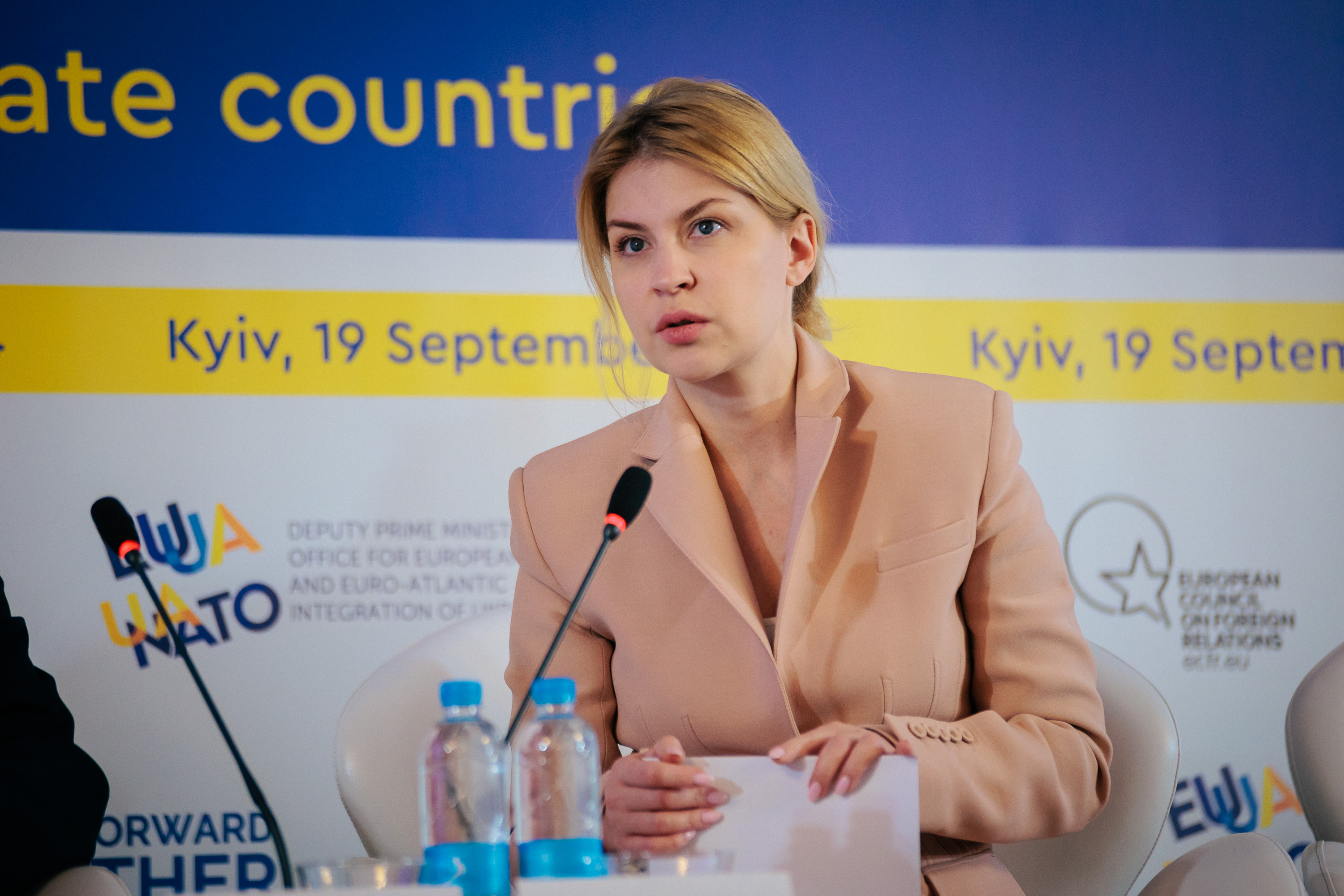
Olga Stefanishyna, Deputy Prime Minister for European and Euro-Atlantic Integration and Minister of Justice of Ukraine:
Today it is very important for me to see an active civil society, which has been and remains the main driver of the transformation of our country. It was you who helped Ukraine become a state that, in fact, revived the policy of enlargement as a priority of the European Union.
The negotiation process is in full swing, and I am convinced that Ukraine itself is its main driver. I am proud that our country not only survived and remained fully functional and effective from the beginning of a full-scale war, but also redoubled its efforts in carrying out reforms. There is only one question: how do we fulfill the reform agenda to make the country as prepared as possible for victory and post-war reconstruction, as well as for membership in the EU and NATO. This gives energy to be a key driver of enlargement, which for its part is the source of the European Union’s geopolitical power.
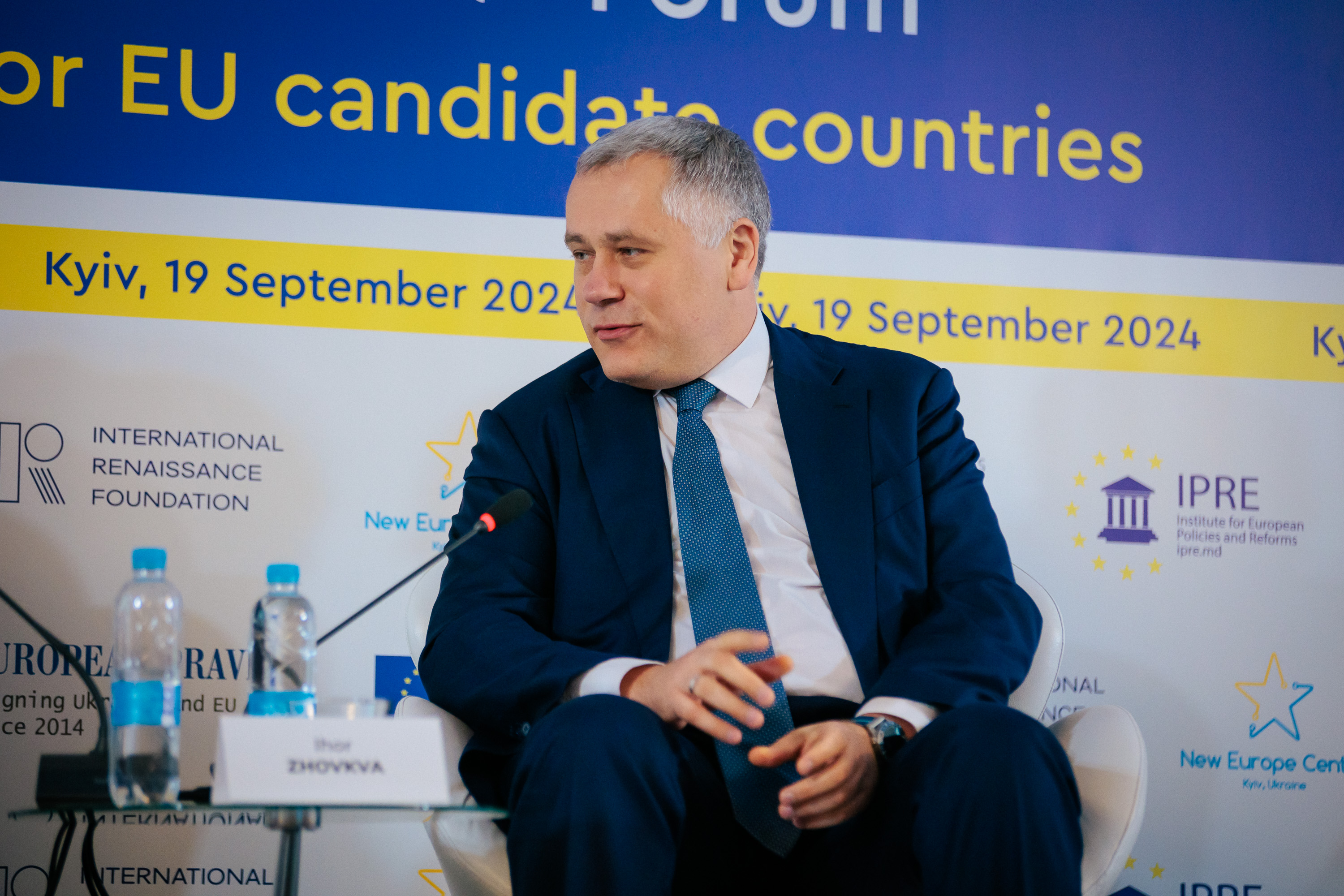
Ihor Zhovkva, Deputy Head of the President’s Office, Diplomatic adviser to the President of Ukraine:
Ukraine is making the EU more united against all odds and we all had the risk of a non-united EU in the beginning of open Russian aggression. Luckily the aggressor president was mistaken. He would have counted on the same reaction of the world as it was in the beginning of 2014 or maybe as it was in previous events in the other countries, but he miscalculated. So, we do believe that Ukraine is making the European Union more united.
Ukraine makes the EU more creative. Many new tools and instruments the EU is able to find, EU started to think outside the box.
When Ukraine becomes a member of the EU, Ukrainians understand that the burden of Ukraine will be not only to secure own territory, but the whole European continent.
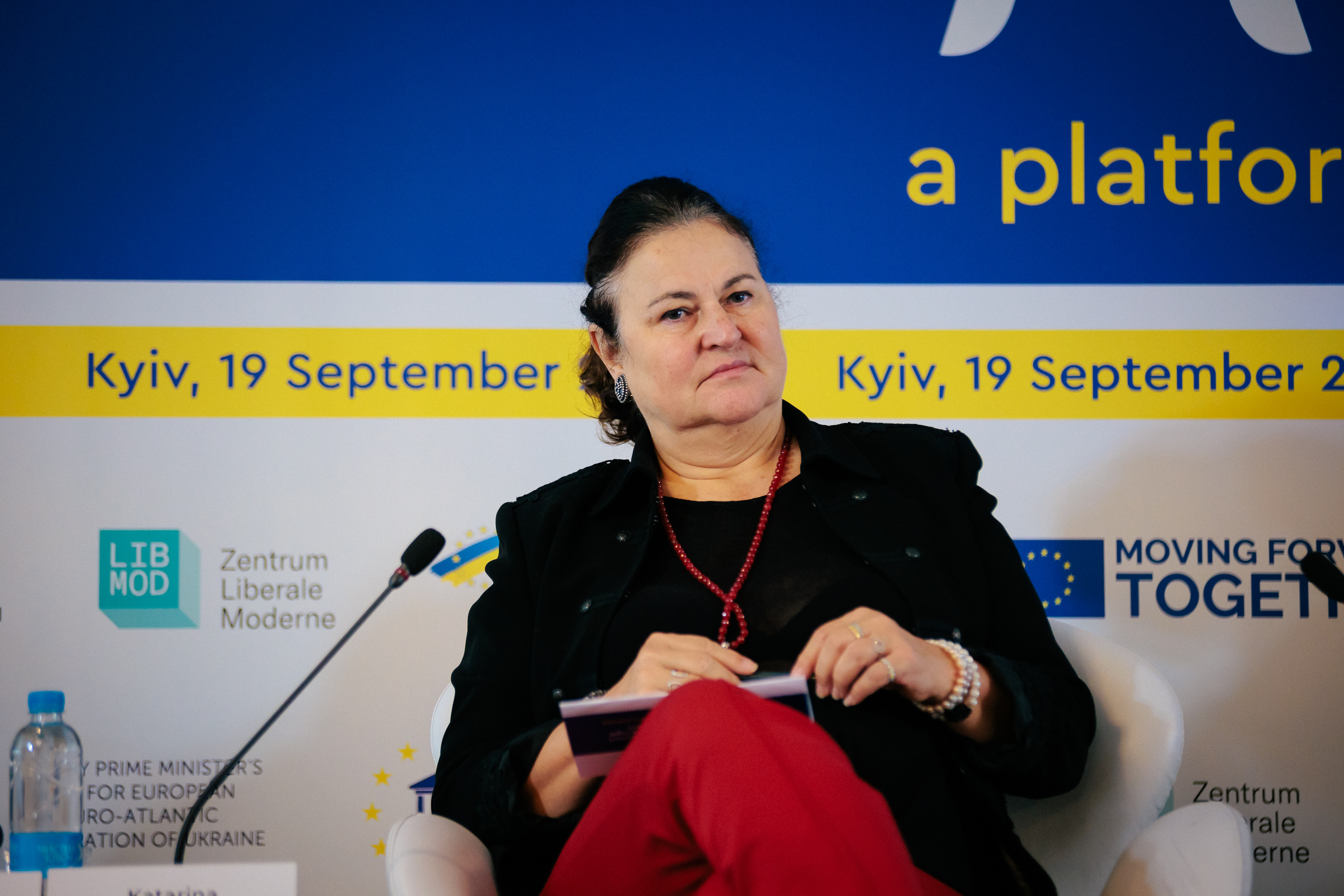
Katarina Mathernova, EU Ambassador to Ukraine:
None of the countries entered the EU without joining NATO. Ukraine’s future is in NATO. It’s in the EU’s core interest to be under the same security umbrella as Ukraine.
I think it’s in the EU’s interest to push sufficient security guarantees for Ukraine and for the EU. We are not going to invent anything better than NATO, but the principle is there, and it should be in the EU’s interest to push that agenda.
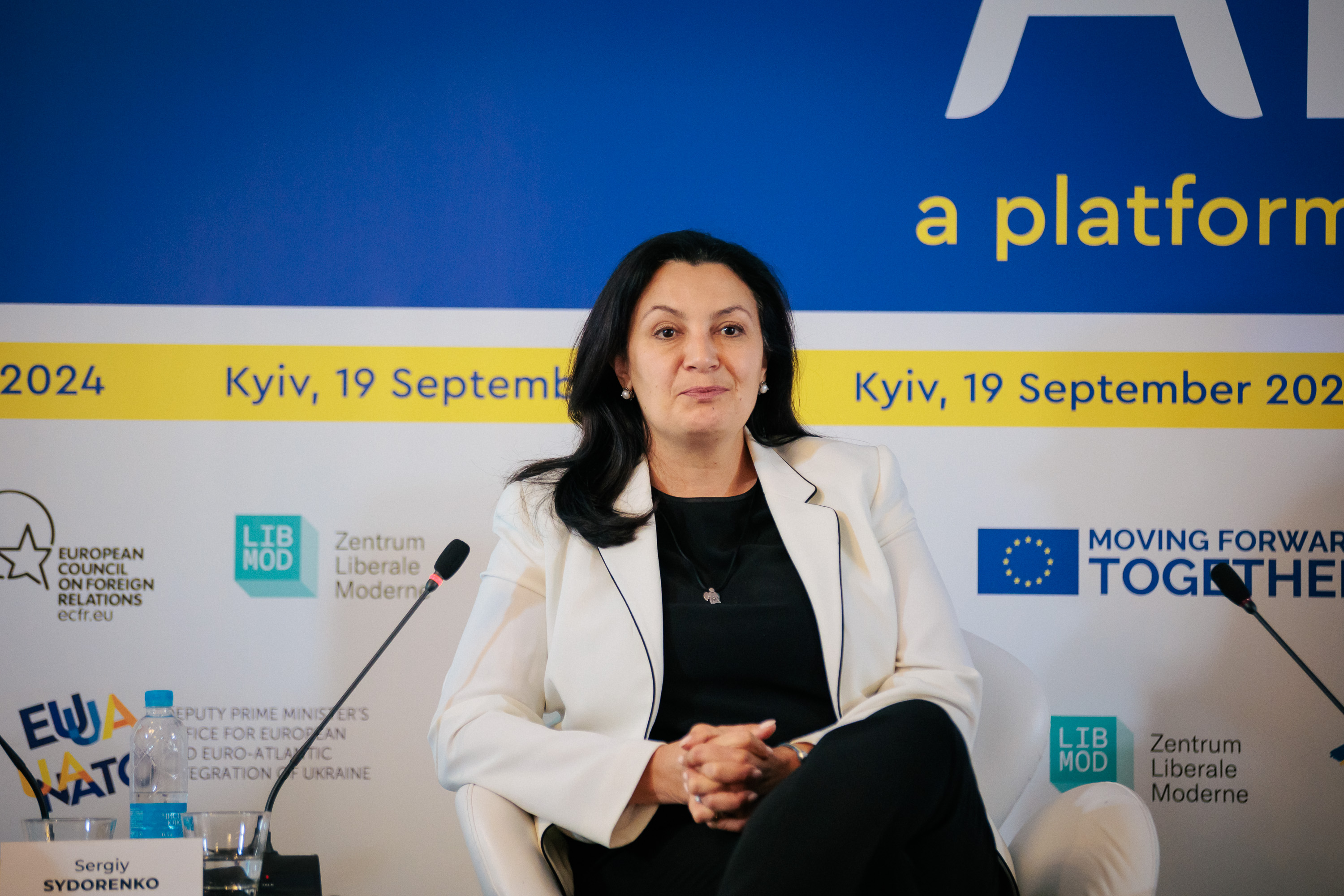
Ivanna Klympush-Tsintsadze, Chair of the Committee on Ukraine’s Integration into the EU of the Verkhovna Rada of Ukraine:
The European Union has reinvigorated its readiness for the enlargement with the processes that have started with a full-scale invasion of the Russian Federation against Ukraine. On behalf of the European Union it was a very right thing to do a few political advances with regard to Ukraine, Moldova, and Georgia. Because it is about acknowledgement that this process has to be widened to include both Western Balkans and the Eastern neighbors of the European Union.
The European Union has understood that it’s not only an economic process but it’s very much a geopolitical one. And that’s the background for all these two and a half years that we have seen changes in some of the decisions.
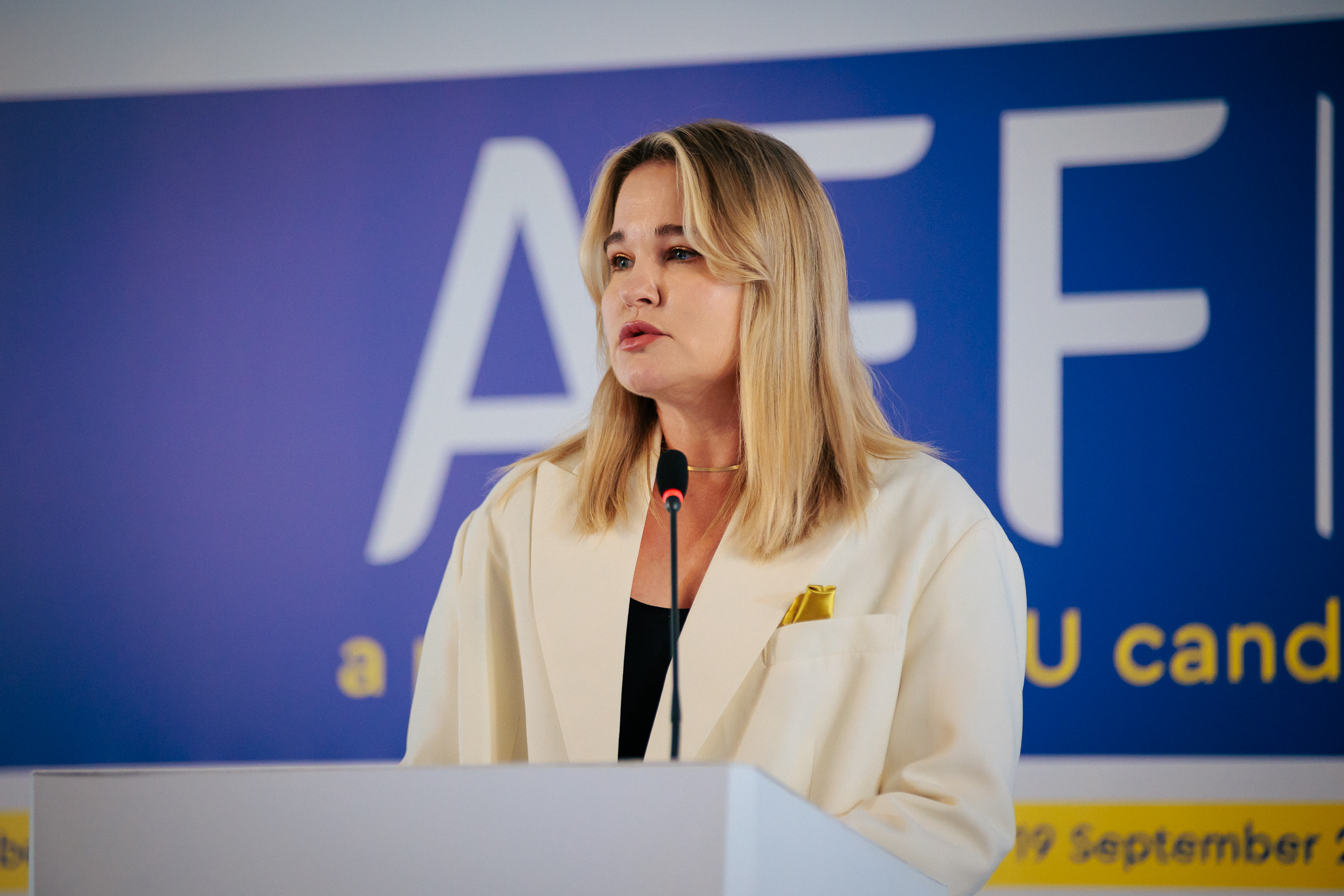
Alyona Getmanchuk, Director of the New Europe Center, Ukraine:
In the case of Ukraine EU fundamentals cannot be properly addressed until Ukraine’s security fundamentals are properly addressed. Without any restrictions for any types of weapons, deep strikes, air defense shield and broader security guarantees.
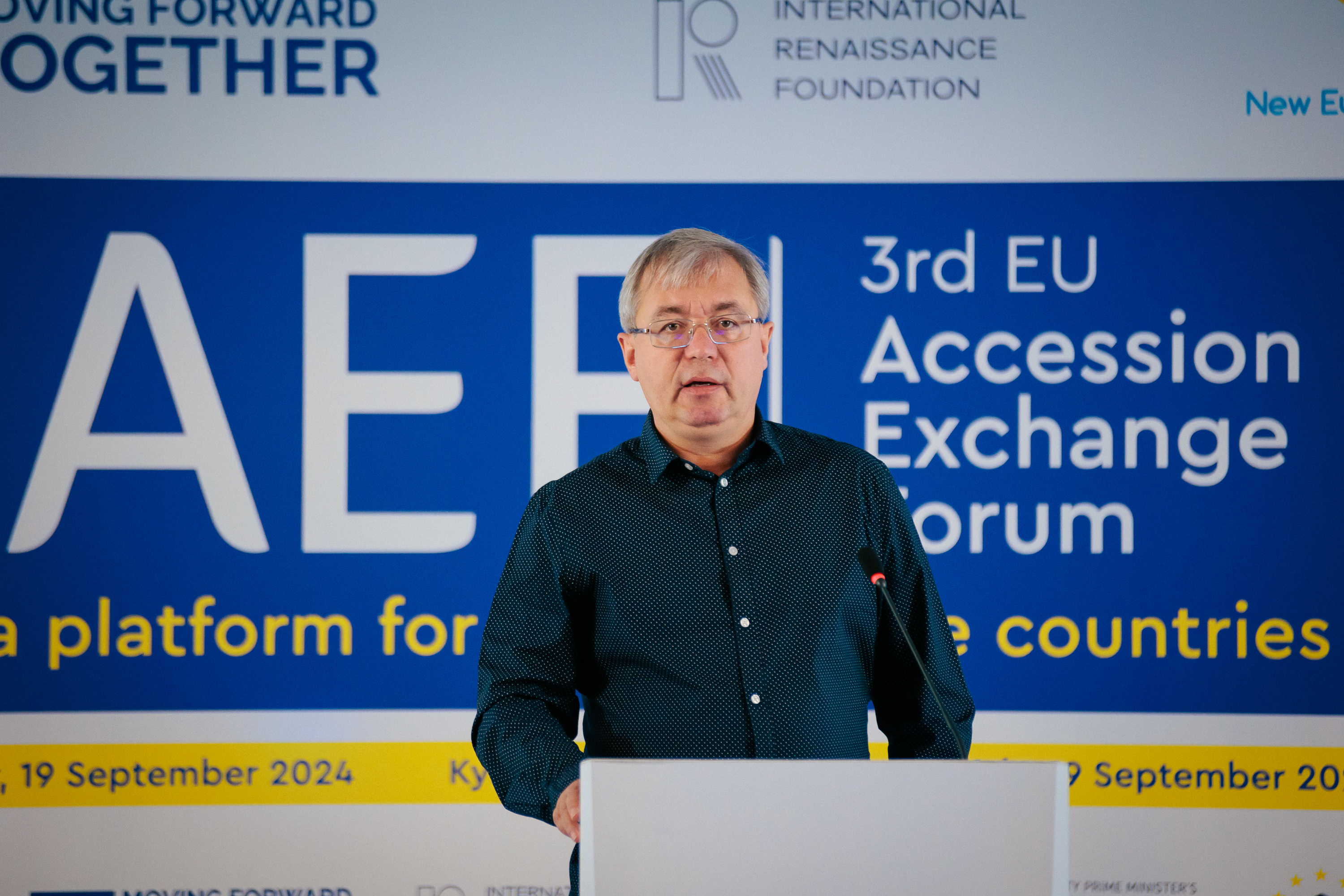
Oleksandr Sushko, Executive Director of the International Renaissance Foundation:
The European integration enlargement project has dramatically accelerated. And we are here in order to identify the substance of the moment where we are. How can we move it forward in order not to waste this historical moment? The window of opportunity will certainly not be open forever and even not for probably a long time. I think that we have to be very determined and very effective to use this particular window of opportunity.
Detailed thoughts of Forum speakers
Key messages of Olga Stefanishyna (key note speech)
Key messages of Katarina Mathernova
Key messages of the speakers from the Session 1
Key messages of the speakers from the Session 2
Key messages of the speakers from the Session 3
Key messages of the speakers from the Session 4
Key messages of the speakers from the Session 6
PHOTO report of the Forum is here.
New Europe Center is greatful for wide media support of the Forum to informational agency UKRINFORM.
The EU Accession Exchange Forum is organized by the New Europe Center in partnership with the Office of the Deputy Prime Minister of European and Euro-Atlantic Integration of Ukraine, the International Renaissance Foundation, the European Council on Foreign Relations, the Institute for European Policies and Reforms, the Center for Liberal Modernity and the European Pravda. The EU Accession Exchange Forum is taking place with EU support, within the EU-funded “European Renaissance of Ukraine” project implemented by the International Renaissance Foundation.



